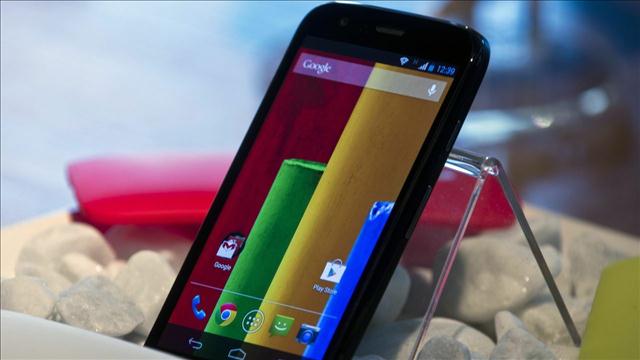Google is selling Motorola’s smartphone business to Lenovo for $2.9 billion, a price that makes Google’s biggest acquisition look like its most expensive mistake.
The deal announced on Wednesday will rid Google Inc. of a financial headache that has plagued the internet company since buying Motorola Mobility for $12.4 billion in 2012. Motorola has lost nearly $2 billion since Google took over, while trimming its workforce from 20,000 to 3,800.
Google had previously recovered some of the money that it spent on Motorola by selling the company’s set-top operations last year to Arris Group Inc. for $2.35 billion. Google is also keeping most of the patents that came with the Motorola purchase.
It’s unclear if Google will have to absorb a charge to account for the difference between what it paid for Motorola Mobility and what it is getting back. The Mountain View, California, company may address the issue Thursday when it announces its fourth-quarter earnings after the market closes.
Most investors viewed Motorola as an unnecessary drain on Google’s profit, a perspective that was reflected by Wall Street’s reaction to the sale. Google’s stock gained $28.08, or 2.5%, to $1,135 in extended trading.
While Google is backpedaling, Lenovo Group Ltd. is gearing up for a major expansion. Already the world’s largest maker of personal computers, Lenovo now appears determined to become a bigger player in smartphones as more people rely on them instead of laptop and desktop computers to go online.
Lenovo already is among the smartphone leaders in its home country of China, but it has been looking for ways to expand its presence in other markets, especially the US and Latin America. The company had been rumored to be among the prospective buyers for BlackBerry Ltd. when that troubled smartphone maker was mulling a sale last year.
This marks Lenovo’s second high-profile deal this month. The company announced plans last week to buy a major piece of IBM Corp.’s computer server business for $2.3 billion.
Buying Motorola will enable Lenovo to join Apple Inc. as the only major technology companies with global product lines in PCs, smartphones and tablets, putting Lenovo in a better position to become a one-stop shop for companies to buy all their devices from the same vendor, said Forrester Research analyst Frank Gillett.
‘This makes Lenovo a company to watch,” Gillett said in an email. ‘The personal device manufacturer business is consolidating, and manufacturers must compete in all three device markets, plus emerging wearable categories, or get left out of the next market shift.”
After it takes over, Lenovo plans to retain a Motorola management team led by Dennis Woodside. Google had reassigned Woodside, one of its top executive, to run Motorola Mobility in hopes he could engineer a turnaround. Under Woodside, Motorola released two new smartphones last year, the Moto X and Moto G. The phones attracted lots of headlines, but didn’t sell as well as anticipated, analysts say.
Lenovo executives also said they aren’t planning to lay off any more Motorola employees and that the subsidiary would remain based in its current headquarters in Libertyville, Illinois.
‘We buy this business, we buy this team as our treasure,” Lenovo CEO Yang Yuanqing said during a Wednesday conference call.
Google is retaining most of Motorola’s portfolio of mobile patents, providing the company with legal protection for its widely used Android software for smartphones and tablet computers. Gaining control of Motorola’s patents was the main reason Google CEO Larry Page decided to pay so much for Motorola Mobility at a time the smartphone maker was already losing money and market share.
Most analysts thought Page had paid too much money for Motorola and questioned why Google wanted to own a smartphone maker at the risk of alienating other mobile device makers that rely on Android.
Selling Motorola’s smartphone operations will ‘enable Google to devote our energy to driving innovation across the Android ecosystem,” Page said in a statement.
Lenovo is picking up about 2,000 Motorola patents in addition to the phone manufacturing operations.
